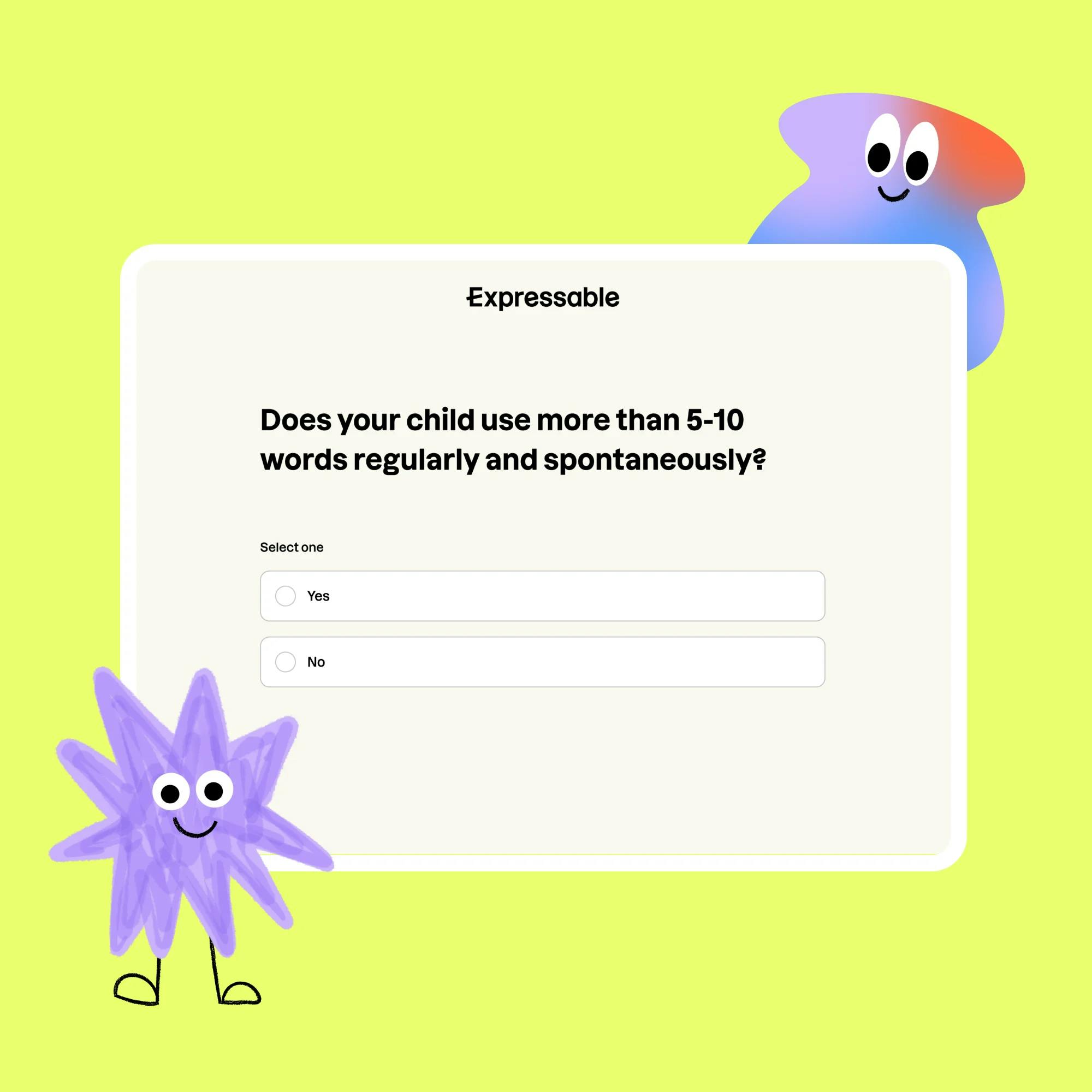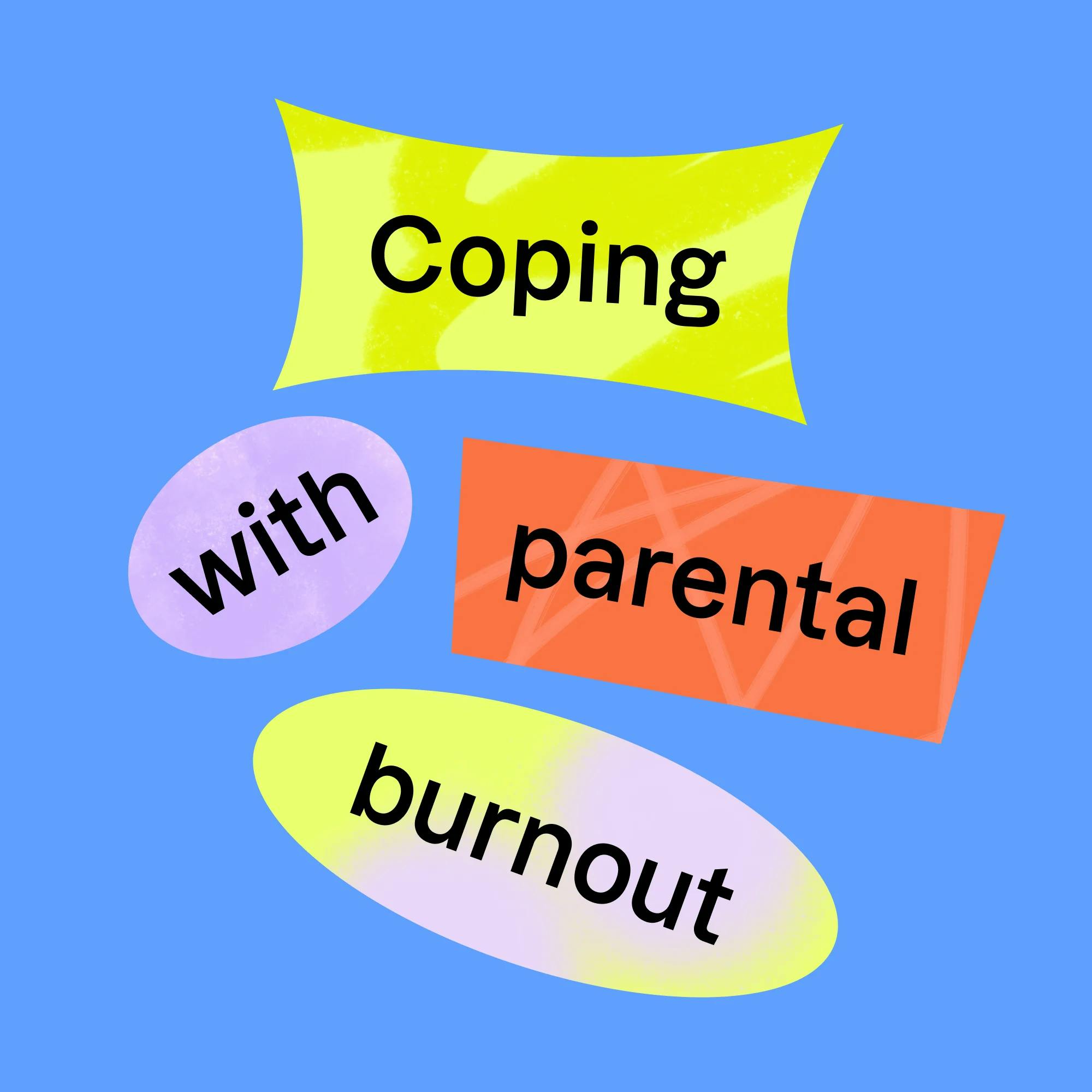It’s normal to be concerned if your child seems to be lagging in a certain area of their development. You might watch them interacting with other children at preschool or the playground, and wonder if they’re “behind” compared to other kids.
It’s important to monitor your child’s growth and development. But it’s equally important to find a healthy balance, so monitoring doesn’t turn into stress and anxiety. Let’s explore how to achieve that balance when it comes to your child’s speech and language development.
It’s easy to slip into the comparison cycle
Whether you’re spending time with friends or chatting with other parents at daycare or the park, it’s normal to talk about what you have in common: parenting. Children’s development is bound to come up. You might hear a parent say, “I wish my child was talking as well as yours!”–or maybe you’re the one with this thought running through your mind.
Plus, as you watch young children interact, you may notice differences in how they communicate. One toddler is stringing two words together, while another is pointing and making sounds.
Whether it’s real-life scenarios like this, a printout from your pediatrician at checkups, or articles and videos on social media, we are constantly surrounded by messages of what our kids “should” be doing. When you step back and think about it, this can be pretty overwhelming!
Can parents cause a speech delay?
It’s also natural for caregivers to feel like their child’s development is a reflection of their parenting. But notice the word “feel” here. If you take one thing away from this article, know that your child’s speech and language development is not a reflection on you as a parent, or on your relationship with your child.
Do caregivers play a large role in helping their child learn to talk? Absolutely! But in many cases, parents can do everything they are “supposed” to do, and their child will still have a speech or language delay or other condition that affects their communication.


Keep in mind, too, that kids develop at different rates. Whether it’s their physical growth, taking their first steps, saying their first words, or riding a bike, each child is unique and has their own timeline.
With that being said, there is a point at which a child’s development may be considered delayed. But that doesn’t have to be a cause for anxiety. Understanding the expected milestones for your child’s age can help you know when to talk with your pediatrician. Ask whether your child could benefit from an evaluation for speech and language. If it turns out that your child has a speech delay, don’t wait to start speech therapy. Remember that you’re doing the right thing in starting intervention early! And concerns about your child’s development shouldn't overshadow the joy you find in your relationship with them.


Stress less with these 4 tips
We know that trying to worry less about your child can be easier said than done. Let’s talk about some practical ways to find a sense of calm and perspective.
1 Recognize your child’s progress patterns
Speech and language development is similar to a staircase. Children typically grow their communication skills sequentially, in order. For example, babbling is an expected skill before a child begins forming actual words. Using single words is expected before a child uses phrases. Each of these skills needs to be mastered before a child can move on to the next skill. It’s like climbing stairs: we have to walk up each step in order to make it to the top.
If your child is delayed in their communication development, they may need to spend more time learning certain skills. What’s important to keep track of is that they are progressing.
Focus on what your child has accomplished and their own personal growth.
If your child is 18 months old and isn’t using words yet, they likely won’t be using phrases when they reach age 2. They may still be focusing on earlier developing skills. If, around age 2, your child does say their first word, this is cause for celebration! They may be speaking late, but they're making progress, and that’s a huge accomplishment.
In other words, if your child has a speech delay and you’re constantly comparing their development to the age-expected milestones, the goal post will constantly be moving. Don’t slip into that mindset. Focus on what your child has accomplished and their own personal growth.
2 Focus on your child’s strengths
Like anything in life, it’s important to not put all your attention on the negatives. So don’t focus on what your child isn’t doing yet–focus on what they are doing. And celebrate that!
Take a minute to think about what your child is successful at, or the reasons you're proud of them. Maybe they already know how to count or can identify their letters. They might have a creative imagination, or they’ll try any new food you put in front of them. Maybe you see some artistic qualities taking shape, or notice how well they can throw a ball. Or maybe you see them playing with friends and recognize how kind and empathetic they are.
There is something to celebrate in every child. And often, what comes easily for one child is challenging for another. So take pride in your child’s unique gifts.
3 Focus on how far your child has come
Whether your child has been in speech therapy for awhile, or you’re just starting to consider extra support for them, take some time to write down their current communication skills. How do they express their wants, needs, or feelings? You can even take videos of how your child communicates. The goal is to have a “time capsule” to come back and look at later.
Over time, revisit your notes or your videos and see how your child has grown and changed. Notice any improvement, no matter how small.
As parents and caregivers, it can be easy to think in black and white terms: “Is my child communicating at their age level, or not? Yes or no?” But new skills that may feel like little changes really are a big deal in speech and language development!
Keep track of all the little wins your child achieves, and remember that these are necessary to help them reach more milestones down the road.


4 Find a support group
If you’re still struggling with stress or anxiety about your child’s development, focus on finding what you need at this time.
Many families enjoy being part of some kind of a support group. This might be a support group for children with specific diagnoses, like autism, childhood apraxia of speech, or Down syndrome. Or it might be an online group for parents of kids in speech therapy, or children with other specific needs. Talking with others who understand your family’s situation can be a strength and comfort. You are not alone!
If your mental health is struggling, don’t hesitate to reach out to a therapist. To find one, you can speak with your doctor, search online for reviews, or talk with friends who may have recommendations. Remember, kids thrive when their caregivers are happy and healthy themselves. Parents do so much to support their children. But you deserve support as well.
How Expressable Can Help
Concerned your child isn't reaching age-expected milestones? Looking for communication support from a professional? Expressable is a national online speech therapy practice serving children and adults. We treat all major areas of communication and feeding, offer flexible hours including evenings and weekends, and accept most major health insurance plans. We’re proud to have earned more than 3,000 5-star reviews from our clients (4.9/5 average).
Our therapy model is centered on parent and caregiver involvement. Research proves that empowering caregivers to participate in their loved one’s therapy leads to better outcomes. That’s why we combine live, 1-on-1 speech therapy with personalized education and home practice activities for faster progress.
Communication is more than words. It’s how we share how we feel and show who we are. We’re here to help you or your child do just that.

 Abby Barnes, M.S., CCC-SLP
Abby Barnes, M.S., CCC-SLP












